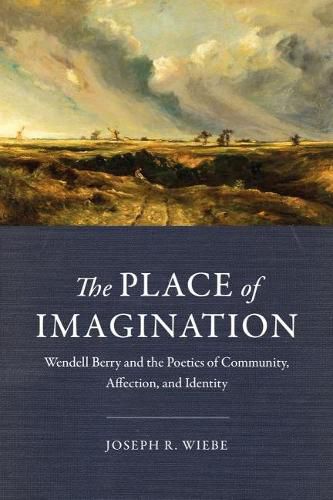Readings Newsletter
Become a Readings Member to make your shopping experience even easier.
Sign in or sign up for free!
You’re not far away from qualifying for FREE standard shipping within Australia
You’ve qualified for FREE standard shipping within Australia
The cart is loading…






Wendell Berry teaches us to love our places - to pay careful attention to where we are, to look beyond and within, and to live in ways that are not captive to the mastery of cultural, social, or economic assumptions about our life in these places. Creation has its own integrity and demands that we confront it.
In The Place of Imagination, Joseph R. Wiebe argues that this confrontation is precisely what shapes our moral capacity to respond to people and to places. Wiebe contends that Berry manifests this moral imagination most acutely in his fiction. Berry’s fiction, however, does not portray an average community or even an ideal one. Instead, he depicts broken communities in broken places - sites and relations scarred by the routines of racial wounds and ecological harm. Yet, in the tracing of Berry’s characters with place-based identities, Wiebe demonstrates the way in which Berry’s fiction comes to embody Berry’s own moral imagination. By joining these ambassadors of Berry’s moral imagination in their fictive journeys, readers, too, can allow imagination to transform their affection, thereby restoring place as a facilitator of identity as well as hope for healed and whole communities. Loving place translates into loving people, which in turn transforms broken human narratives into restored lives rooted and ordered by their places.
$9.00 standard shipping within Australia
FREE standard shipping within Australia for orders over $100.00
Express & International shipping calculated at checkout
Wendell Berry teaches us to love our places - to pay careful attention to where we are, to look beyond and within, and to live in ways that are not captive to the mastery of cultural, social, or economic assumptions about our life in these places. Creation has its own integrity and demands that we confront it.
In The Place of Imagination, Joseph R. Wiebe argues that this confrontation is precisely what shapes our moral capacity to respond to people and to places. Wiebe contends that Berry manifests this moral imagination most acutely in his fiction. Berry’s fiction, however, does not portray an average community or even an ideal one. Instead, he depicts broken communities in broken places - sites and relations scarred by the routines of racial wounds and ecological harm. Yet, in the tracing of Berry’s characters with place-based identities, Wiebe demonstrates the way in which Berry’s fiction comes to embody Berry’s own moral imagination. By joining these ambassadors of Berry’s moral imagination in their fictive journeys, readers, too, can allow imagination to transform their affection, thereby restoring place as a facilitator of identity as well as hope for healed and whole communities. Loving place translates into loving people, which in turn transforms broken human narratives into restored lives rooted and ordered by their places.